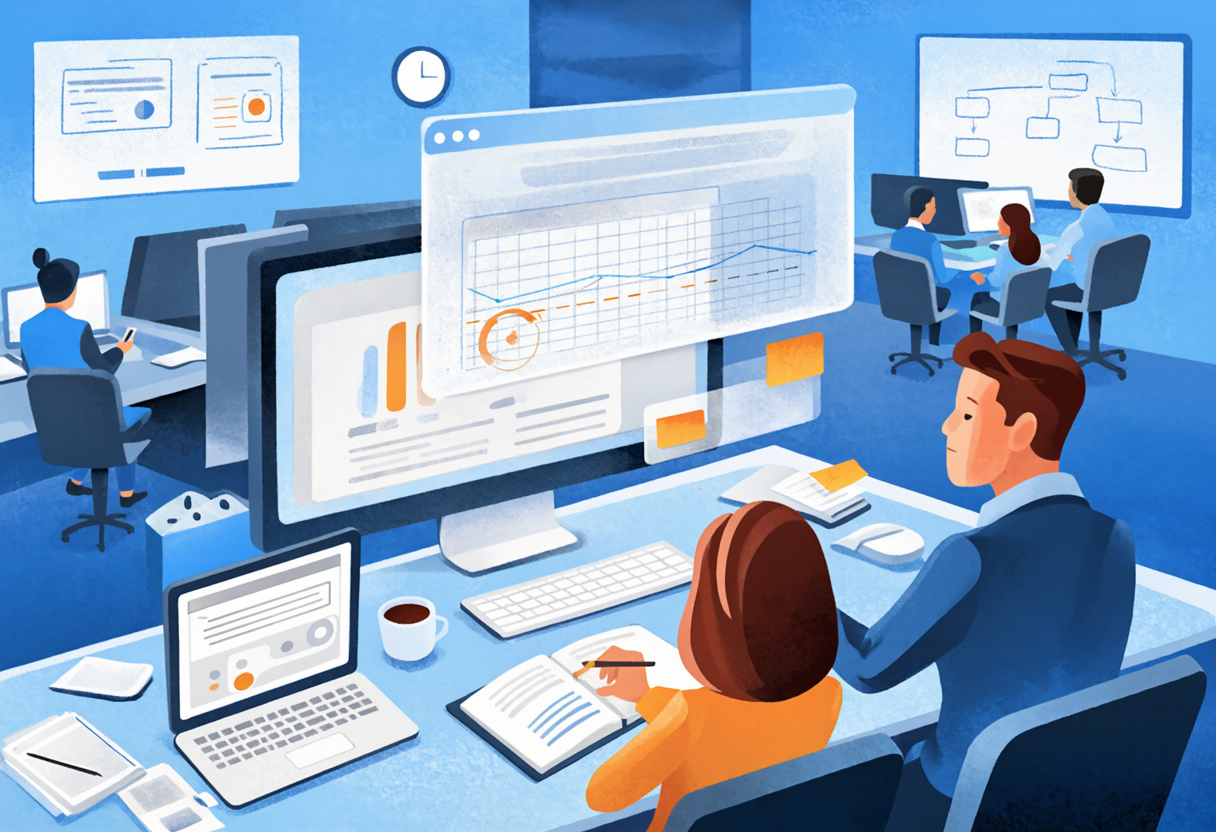How Accounting Software is Revolutionizing Business Management
The advent of Accounting Software has fundamentally transformed how businesses manage their finances. This article explores the various ways in which these tools have streamlined processes, improved accuracy, and influenced strategic decision-making. Understanding the impact of Accounting Software is crucial for organizations looking to leverage technology to achieve optimal financial performance. Discover the future of business management in a digital world.
The Transformation of Financial Management through Accounting Software
In the realm of business, financial management has traditionally been time-consuming and error-prone. However, the introduction of Accounting Software has marked a turning point in how organizations handle their financial operations. By digitizing financial processes, businesses can minimize manual entries and associated errors, enabling better accuracy in financial reporting. Featured prominently in many sectors, Accounting Software also supports automation for recurring tasks such as invoicing and payroll processing. This automation frees up valuable time for finance teams to engage in more strategic work, allowing for improved business performance. Moreover, real-time data access ensures that businesses can respond swiftly to changes in financial environments, fostering agility. Therefore, the impact of Accounting Software on financial management is both profound and far-reaching.
Enhancing Decision-Making Through Accurate Data
The reliability of financial data is crucial for effective business decision-making. Accounting Software serves as a critical tool in ensuring data integrity and accuracy. With up-to-date financial information at their fingertips, business leaders can perform insightful analyses and make predictions about future financial trends. These insights enable organizations to remain competitive by making informed choices about investments, operational strategies, and cost-cutting opportunities. Furthermore, integration capabilities with other business tools enhance the depth of insights gained, as data from various sources can be consolidated and analyzed comprehensively. As a result, businesses leveraging Accounting Software are more equipped to navigate uncertain market conditions, making swift, informed decisions paramount for success.
The Role of Automation in Accounting Software
Automation is at the heart of modern Accounting Software, where various features are designed to handle repetitive tasks effortlessly. From generating invoices to reconciling bank statements, Accounting Software can manage an array of processes that traditionally required extensive manual effort. The importance of this automation cannot be overstated; with increased efficiency, finance teams can focus more on strategic tasks that drive business growth. Additionally, many Accounting Software solutions offer features like reminders and alerts for important financial deadlines, further reducing the chances of missing critical obligations. The implications of high-level automation naturally lead to increased productivity across the organization. This evolution not only saves time and money but fundamentally redefines the role of finance within businesses.
Future Trends in Accounting Software
As technology advances, the landscape of Accounting Software continues to evolve. Emerging trends indicate a shift toward more integrated, AI-driven systems that can provide predictive insights and tailor recommendations based on user behavior. Furthermore, the rise of mobile applications enables real-time access to financial data, promoting greater flexibility for businesses. Enhanced security features will also be a focal point, as data breaches pose growing risks. Consequently, organizations that stay at the forefront of these advancements will be well-positioned to leverage the full potential of Accounting Software. The ongoing evolution underscores the need for businesses to remain adaptable and proactive in their approach to financial management.
Conclusion
In conclusion, the advent of Accounting Software marks a pivotal shift in the field of business management. By streamlining financial processes, enhancing decision-making, and incorporating automation, these tools have revolutionized the way organizations operate. The future looks bright as accounting technology continues to advance, paving the way for even more sophisticated solutions. To remain competitive, organizations must embrace the changes brought about by Accounting Software and leverage its capabilities for optimal financial performance. Ultimately, the effective integration of such systems into business operations is not merely advantageous; it is essential for success in the modern marketplace.
